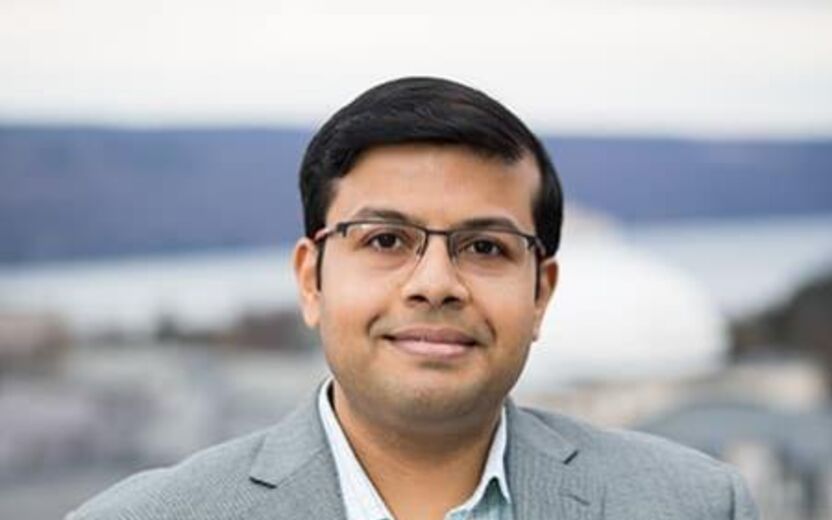Debanjan Chowdhury awarded A&S New Frontier Grant for "Quantum Spin Liquids" project

Assistant Professor Debanjan Chowdhury is one of two LASSPers to receive a 2023 A&S New Frontier grant for a project. His project, titled “Probing dynamics of electronic quantum crystals on near-term quantum computers,” will study a special class of quantum magnets using noisy intermediate-scale quantum computing (NISQ) devices.
Your typical refrigerator magnet is a ferromagnet: a material where the spin of its atoms are aligned in the same direction. With the right equipment and environment, you can manipulate the atoms’ alignments. For example, to create an anti-magnet, which has no net magnetic field, you want half of the atoms to spin one way and half to spin the opposite way in an alternating pattern to cancel out their magnetic fields. However, there are some arrangements of atoms where you can’t make an anti-magnet. Picture three atoms arranged like a triangle: one of the atoms won’t “fit” in the alternating spins needed to make the anti-magnet.
Unless, of course, you bring in quantum mechanics. Superposition (the idea that a particle can exist in multiple states simultaneously) can resolve this issue by allowing the particles to exist in multiple spin orientations at once, in a way that averages out to an anti-magnetic alignment. When these triangle-arranged atoms are sufficiently cooled, their spins can start to enter this state. It is called a “spin liquid” because the atom spins start “behaving like particles in their own right” and moving like water molecules do in liquid water.
Quantum spin liquids have potential applications as high-temperature superconductors and in fault-tolerant topological quantum computing. However, QSLs are still poorly understood, in part because of the difficulty of simulating them. Chowdhury’s project will involve developing algorithms to then simulate QSLs on NISQ devices. It aims to better understand the ground state of QSLs and how QSLs change over time. Understanding these features of QSLs will make them easier to manipulate and open up possibilities for further research.
Author: Meredith Czymmek
See also:
- Cornell Arts & Sciences Article – 5/17/23
- Cornell Chronicle Article – 5/17/23
